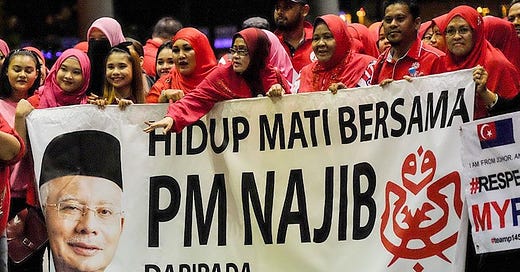Malaysia's Fraught State Election
Masses of new voters, a vibrant new party, resurgent ‘Bossku’ on the stump
On March 13, Malaysia could head off an electoral cliff in state elections in Johor, Malaysia’s second-biggest state. The country’s parliament in 2019 cut the national voting age from 21 to 18, adding 5.4 million voters nationwide and increasing the voter rolls by 40 percent. If anything, it is a dress rehearsal for general elections that may be called …
Keep reading with a 7-day free trial
Subscribe to Asia Sentinel to keep reading this post and get 7 days of free access to the full post archives.




